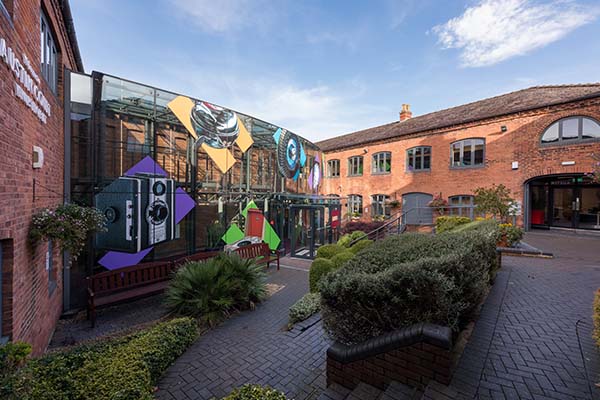Louisa Daley talks to the Birmingham and the West Midlands Convention Bureau and IET Birmingham to understand how the Commonwealth Games created event legacy and revitalised the regions venues.
Our industry prides itself on connecting individuals and creating memorable experiences, which has scope to create lasting legacy. And what better example of this than the 2022 Commonwealth Games? From 28 July – 8 August, the West Midlands played host to a Games that not only sold around 1.5 million tickets, but also welcomed 4,600 athletes from across 72 nations and territories to take part in the huge sporting spectacle.
Over half the country’s poplation tuned in, meaning all eyes were on the region and its surrounding areas. How exactly did the West Midlands harness this global spotlight to further its positioning as a centre for events excellence?
To understand the Games’ impact on the legacy of the region and its venues, Louisa Daley sits down with Sian Roberts, head of business growth; and Stephanie Mynett, business tourism manager from Birmingham and the West Midlands Convention Bureau; as well as Angie Devi, sales office manager, IET Birmingham: Austin Court.
“The West Midlands has a strong track record in delivering high -quality and high-profile sporting events, and the 2022 Commonwealth Games was a perfect opportunity to do this again. Events like this offer an opportunity for us to tell our story,” says Mynett.
“Being able to demonstrate that we can accommodate this large-scale, global event and being able to showcase our venues, workforce, talent, local authorities and stakeholders that we’ve got here has helped create legacy for the city and region,” Roberts adds.
Mynett agrees and states that the Games will act as a catalyst for further investment and regeneration, which she says is a “huge legacy opportunity in itself”.
The bigger picture
This is where the £24m Business and Tourism Programme (BATP) comes in, which is funded by the DCMS and the West Midlands Combined Authority.
The three-year programme aims to leverage the Games to create long-term, economic benefits for businesses and communities across the West Midlands region.
“The whole remit of the programme is to create 1,000 new jobs (600 in the West Midlands region); bring in more international and national visitors and, therefore, generate millions of pounds in visitor spend; highlight the economic impact conferences bring and develop sector expertise,” explains Roberts.
The programme also aims to create positive perceptions of the West Midlands, which has already begun. Roberts tells me the Convention Bureau surveyed its national and international visitors before and after the Games, about this very thing.
“Before the Games, visitor perception was scored between a three and six, and after the Games, it went up and was between an eight and 10 (10 being the best and one being the worst). “The Games really changed the perception of the region for the better,” says Roberts.
Back to business
“You can focus on individual cases of legacy as well,” says Mynett. “For example, the £72m Alexander Stadium not only hosted sporting events, but it’s now about to become a conference and event facility.
“There’s also the new Sandwell Aquatics Centre, which provided an elite swimming facility during the Games.”
The legacy and revitalisation not only affect large-scale venues in the region, but also for smaller venues like IET Birmingham: Austin Court.
When the pandemic hit, Devi tells me the Grade II listed building had to turn away bookings. “We are a small venue; our largest capacity is 150 and we could only accommodate 24 with socialdistancing measures. But, on the positive side, clients were still ringing in to make bookings. We have about 70% repeat clients,” she says.
Despite the challenges the pandemic presented for IET Birmingham, its space was still utilised. For example, a university used the venue for overspill space for its business management students. “We were lucky to have a six-month contract with them. They used three of our rooms for four days a week, which really helped in terms of recovery,” says Devi.
Once restrictions eased, London seemed to bounce back quicker than Birmingham. “IET London: Savoy Place, our sister venue, had more of an influx of enquiries than the Midlands. That’s why the 2022 Commonwealth Games were essential for injecting much needed business into destinationslike Birmingham,” adds Devi.
During the Games, IET Birmingham hosted Team South Africa. “They called us ‘ekhaya’, which means a home away from home,” reveals Devi. “They were using our venue to showcase their business and culture. We had the South African Women in Sport event, which saw athletes come on site – there was a great sense of community and excitement,” she says.
“Venues across the West Midlands can use the Games as an opportunity to host more large-scale events – as it shows we are able to do these major events, and that we are a major player,” she says.
Although the Games are now over, its legacy in the West Midlands has just begun and is expected to only grow further.















